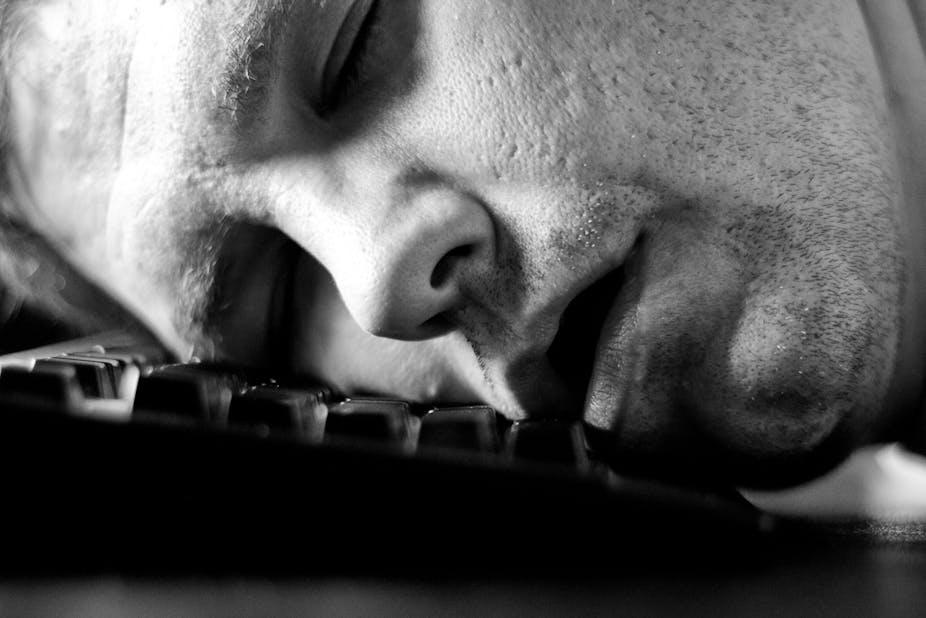It’s half-time in the gold medal women’s basketball game, and the Opals lead the USA by a point. Lauren Jackson, the best female basketballer in the world, has dominated the first half in the same way she has dominated the whole tournament. I have watched gymnastics, weightlifting, athletics, archery and even fencing tonight to stay awake for this historic Australian sporting moment. The Opals are attempting to win the first Olympic gold medal for an Australian basketball team, one step higher on the podium than they finished four years ago in Beijing. I have to be at work in a few hours and I haven’t slept, but history is being made.
I have a half-time stretch, make another cup of tea and settle back under the rug for the big second half. Come on girls!
What’s that noise? Is that our national anthem? Why are they playing that while the game is still going? No!!!!! I’ve missed the end of the game. I have to go to work on two hours of couch sleep and to make it worse, I didn’t even get to see moment we made history.
Get a sleep game plan
Unless we are taking a fortnight off work, the Olympic Games are going to be hard work for us sports fans. What should we be thinking about in relation to staying awake and being productive? How much is our waking function going to be affected by disrupted sleep over a two-week period?
What can we do to make sure we don’t miss the second half of the gold medal game? Can we just give up sleep for a couple of weeks?
We are in training, sports fans: time to look at our game plan.
First things first. If we are going to survive these two weeks with our jobs, relationships and health intact then we are going to need some sleep.

Research shows that performance is degraded when people get fewer than six hours of sleep over a series of consecutive nights. If you haven’t had any sleep in 20 hours or more, then you may be impaired to the same degree as if you blew over 0.05 on the breathalyzer. This has implications for productivity, efficiency, mood and safety. So if we want to be awake, functioning and safe during the day, then we do need to be getting some good quality sleep each night.
Here are my tips for surviving your Olympic schedule.
Recovery nights Find a few nights in the two-week schedule where you can trust the rest of the Australian sporting public to cheer on our athletes while you catch up on sleep. Good, long sleeps help us to recover from accumulated sleep debt.
I have the basketball covered. Who is volunteering to yell at their TV to support the Hockeyroos?
Sleep when you can If the gold medal game is in the early hours of the morning, then go to bed and set the alarm. If your favourite event or match is on in the evening, switch the TV off after the win and go to bed.

Don’t get caught up in the euphoria of a sport you aren’t really interested in just because the TV commentator tells you we’ll be right back or you might miss something amazing. The Olympics is full of “moments”, but you can’t possibly see them all live. Choose your live events wisely and get sleep when you can.
Sleep well when you can If you have a TV in the bedroom and keep it on while you are sleeping, chances are your sleep won’t be as good as if the room was dark and quiet. If you are sleeping, then sleep. The radio, newspapers, TV, Twitter, internet, Olympics app for android and iPhone, Facebook sites and YouTube will have all the news about all the results the next day. It will be almost like you were there.
Naps and coffee Naps are great for boosting alertness and performance. Use naps during the day if your workplace allows it. Catch a quick 20 minutes at lunch time, or before you drive home, or on the bus to work.
Naps won’t keep you going forever, but they are a good tool for the brief duration of competition. And then when you wake from your nap, have a coffee.
Record it Record it, wake up a little early and watch the race or game before you hear the results. It will be close to live and you can skip all the annoying ads for the amazing and stimulating new shows coming up on (insert appropriate broadcaster here).
Know your limits If you haven’t had much sleep because our best hope in female judo (who you had never heard of until tonight) could not win her bout without your enthusiastic support on the other side of the world, then acknowledge how you might be affected during the day.
Your reaction times will be blunted, you might not be able to concentrate too well, your hand-eye coordination, balance and decision-making could all be impaired. Understand the risks of inadequate sleep.
With a good game plan, aimed at getting quality sleep when you can, you should be able to survive the Games and see the big moments.
Aussie, Aussie, Aussie!

